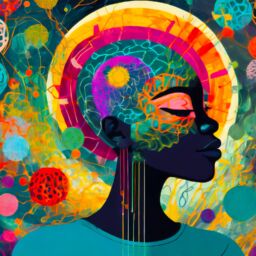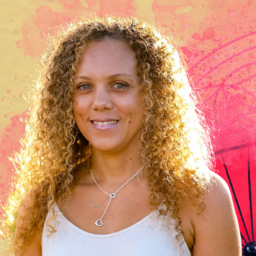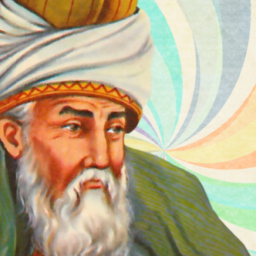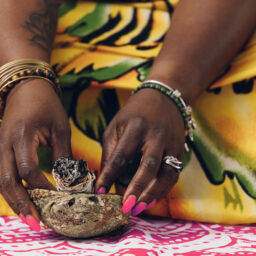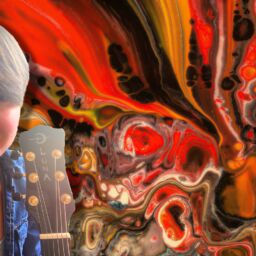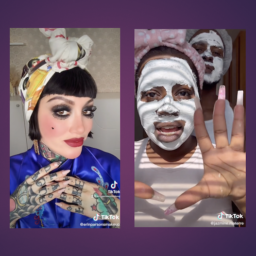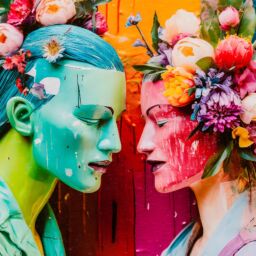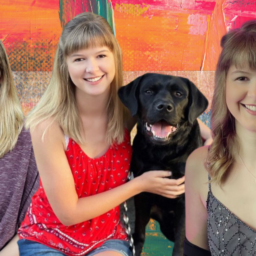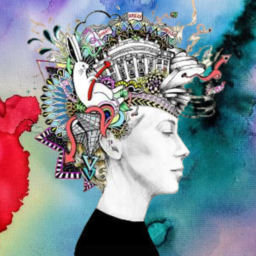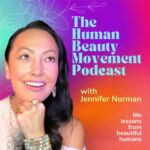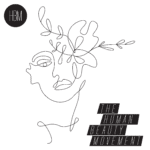
Unveiling the Depths with Nikos Patedakis on The Human Beauty Movement Podcast
In a world filled with ecological tensions and philosophical uncertainties, a movement emerges – one that seeks to juxtapose the intricate dance of wisdom, love, and beauty against a backdrop of modern conditioning. During a profound episode of The Human Beauty Movement Podcast, we welcome guest Nikos Patedakis to explore the very concepts that knit the fabric of an enlightened life.
To set the stage, we start by questioning how modern-day conditioning influences our lives, and how real wisdom can help us navigate this complexity. After all, we are living in a time beset by “polycrisis” — multiple crises facing the world, including ecological, social, political, health, and safety. According to Nikos, this polycrisis reflects our collective “bad philosophy.” Philosophy is the way we do things, and so maladaptation has led us away from environmental harmony – an issue foretold by wisdom traditions of historic luminaries like Socrates, Buddha, and Lao Tzu.
The dangerous nature of wisdom is placed under the microscope. It’s a double-edged sword that holds the power to dismantle deeply rooted structures of power and ignorance, but when misemployed, it can be equally destructive. Nikos drives home this point, implying that wisdom isn’t merely a reservoir of knowledge but a transformative force that demands cautious handling.

As the conversation progresses, a fascinating counterpoint arises: why, despite its inherent value, is wisdom often in opposition to society’s definition of success and progress? Why do humans tend to opt for ignorance over cognizance? Nikos sees a linkage between wisdom and wildness, illustrating how the possession of fierceness and gentleness could cultivate a profound wisdom that is deeply connected with nature’s rhythms.
But what does seeking wisdom mean for the everyday individual trying to make a living in a world where material progress often clashes with ideals? Here, Nikos navigates the narrative toward Adam Smith, discussing the economist’s work on consumerism and the widening chasm between money and our ecological or spiritual realities. He advocates for a slowing down, for embracing the unknown, and for seeking guidance in wisdom traditions to spark significant change.
The conversation turns to the inherent energies of wisdom, love, and beauty. These are not simply philosophical abstractions but innate elements within us, and philosophy exists to access and nourish them. Nikos draws attention to the power of compassion practice and self-love as a form of meditation. Indeed, compassion, love, lifestyle, and livelihood intertwine, laying the foundations for a genuinely impactful existence.

The beauty industry often emphasizes external appearances, but during this session, Nikos highlights the importance of inner work and the role of beauty as an experiential reality rather than a superficial attribute. Patedakis refers to the “awakened being of beauty,” – whether cloaked in burlap or sartorial elegance – inner beauty is more meaningful than outward appearances. The metaphor of applying makeup to “empty space,” suggests that we may be deluding ourselves with aesthetic materialism when having a primary focus on inner beauty and spiritual harmony could be the path to fulfillment.
Nikos advocates for the vital practices of gratitude, the recognition of our interconnectedness with nature, and the transformative power of love as defined by wisdom traditions – a love that aspires to bring happiness and spiritual insight. Therefore, the concept of meditation extends beyond its formal practice into a way of being that fosters a mindset of beauty and openness. An important point is made regarding the healing practice of compassion that has even aided veterans with PTSD.
Listening to Nikos, one thing becomes distinct: humans have a tendency to lean towards the comfort of what they know, even if it’s painful, over the fear of what they don’t know, even if that will lead to greater joy. Our resistance to face larger realities binds us, much like Plato’s cave dwellers, clinging to shadows on the wall rather than turning toward the light of a broader vision. Nikos references Platonic cures for human madness: art, love, initiation, and prophecy which propel us towards a profound inspiration that transcends the ego’s grasp.

This episode does not shy away from the monumental task of aligning our consumer habits with our higher principles. “Solar-powered samsara” becomes a symbol for the difficulty of integrating sustainable efforts into a society steeped in its wasteful patterns. Dramatic transformations, likened to punctuated equilibriums, are not thrown out in favor of slow, incremental change; instead, they are embraced as a potential necessity – like a wildfire that clears the old to make way for the new.
At the core of this episode lies the unspoken question: What does it mean to live beautifully? Answering this requires one to strip away the world’s expectations and embody the authentic resonance of one’s innate wisdom, love, and compassion. By weaving together these threads, it becomes possible to construct a life that not only honors one’s existence but elevates the collective human spirit.
This particular episode of The Human Beauty Movement Podcast stands as a testament to the power of dialogues that challenge, inspire, and pivot one’s perception of reality. It’s an offering with the potential to reshape how we engage with ourselves, each other, and the planet.
The wisdom woven throughout the podcast isn’t just a roadmap; it’s an invitation, a call to arms to reconceptualize beauty — to view it through a lens that transcends conventionality and dares to delve into the depths of the human soul. As you listen to the full episode we hope you will be left with a lingering sense of possibility — for a life lived boldly in the full embrace of wisdom, love, and beauty.
—
Related Articles:
*The Human Beauty Movement may receive a small commission from your support

